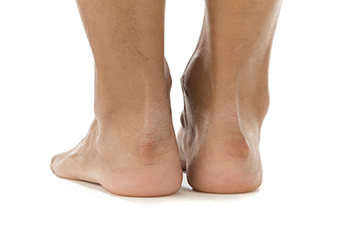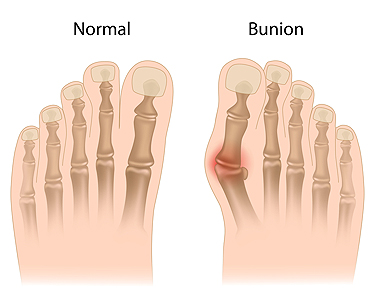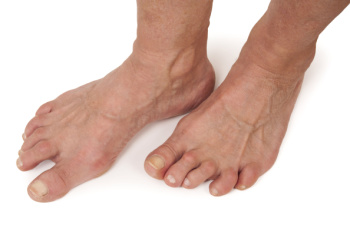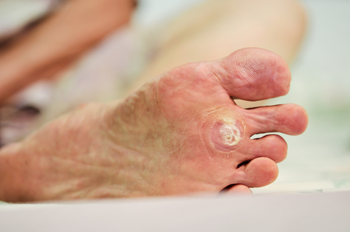
Haglund’s deformity, also termed pump bump, refers to a bony enlargement on the back of the heel bone, where the Achilles tendon attaches. Haglund's deformity often leads to heel pain, swelling, and redness in the area, especially when the enlarged bone rubs against tight or rigid shoes. People with high arches, tight Achilles tendons, or a tendency to walk on the outside of their heels may be at a greater risk of developing this problem. It is also seen in runners and people who wear shoes with stiff heel counters, which are designed to hold the heel in place and help maintain the shoe’s shape. A podiatrist can examine the heel and use X-rays or ultrasound imaging to confirm the diagnosis and recommend treatment. In advanced cases, surgery may be needed. If you are experiencing this type of heel pain, it is suggested that you schedule an appointment with a podiatrist to determine the cause and receive appropriate treatment.
Many people suffer from bouts of heel pain. For more information, contact one of our podiatrists of Associates in Podiatry, PC. Our doctors can provide the care you need to keep you pain-free and on your feet.
Causes of Heel Pain
Heel pain is often associated with plantar fasciitis. The plantar fascia is a band of tissues that extends along the bottom of the foot. A rip or tear in this ligament can cause inflammation of the tissue.
Achilles tendonitis is another cause of heel pain. Inflammation of the Achilles tendon will cause pain from fractures and muscle tearing. Lack of flexibility is also another symptom.
Heel spurs are another cause of pain. When the tissues of the plantar fascia undergo a great deal of stress, it can lead to ligament separation from the heel bone, causing heel spurs.
Why Might Heel Pain Occur?
- Wearing ill-fitting shoes
- Wearing non-supportive shoes
- Weight change
- Excessive running
Treatments
Heel pain should be treated as soon as possible for immediate results. Keeping your feet in a stress-free environment will help. If you suffer from Achilles tendonitis or plantar fasciitis, applying ice will reduce the swelling. Stretching before an exercise like running will help the muscles. Using all these tips will help make heel pain a condition of the past.
If you have any questions, please feel free to contact our offices located in Pittsburgh-South Hills, and Pittsburgh-Bellevue, PA . We offer the newest diagnostic and treatment technologies for all your foot care needs.





